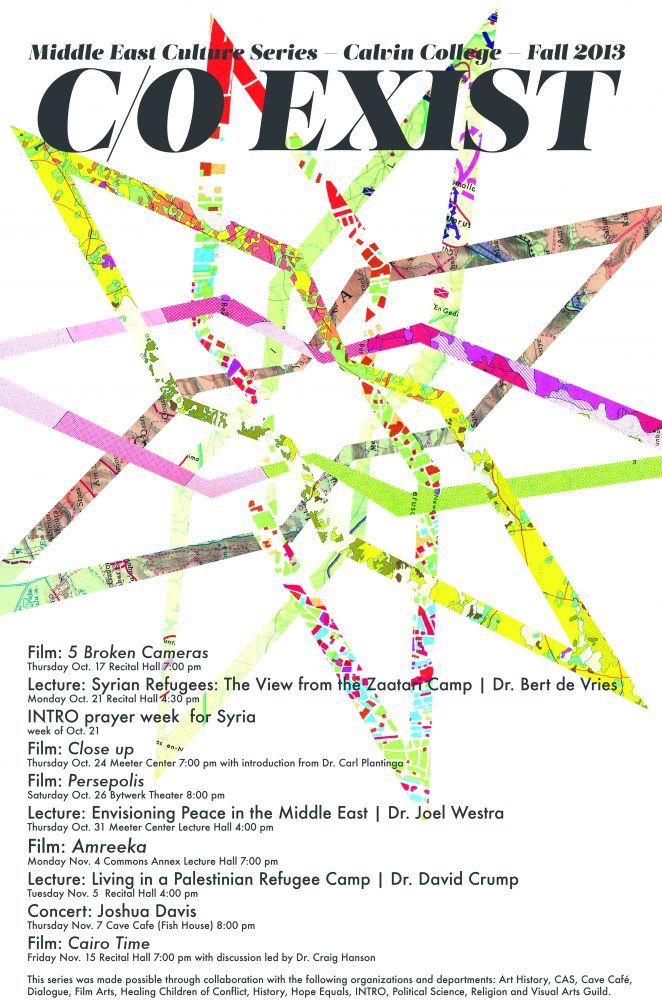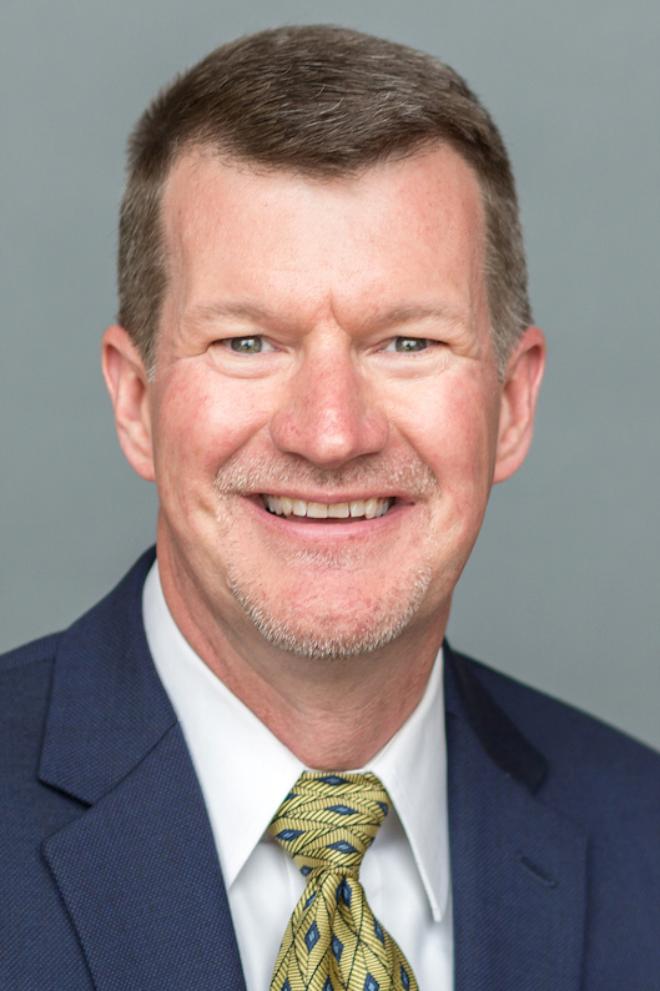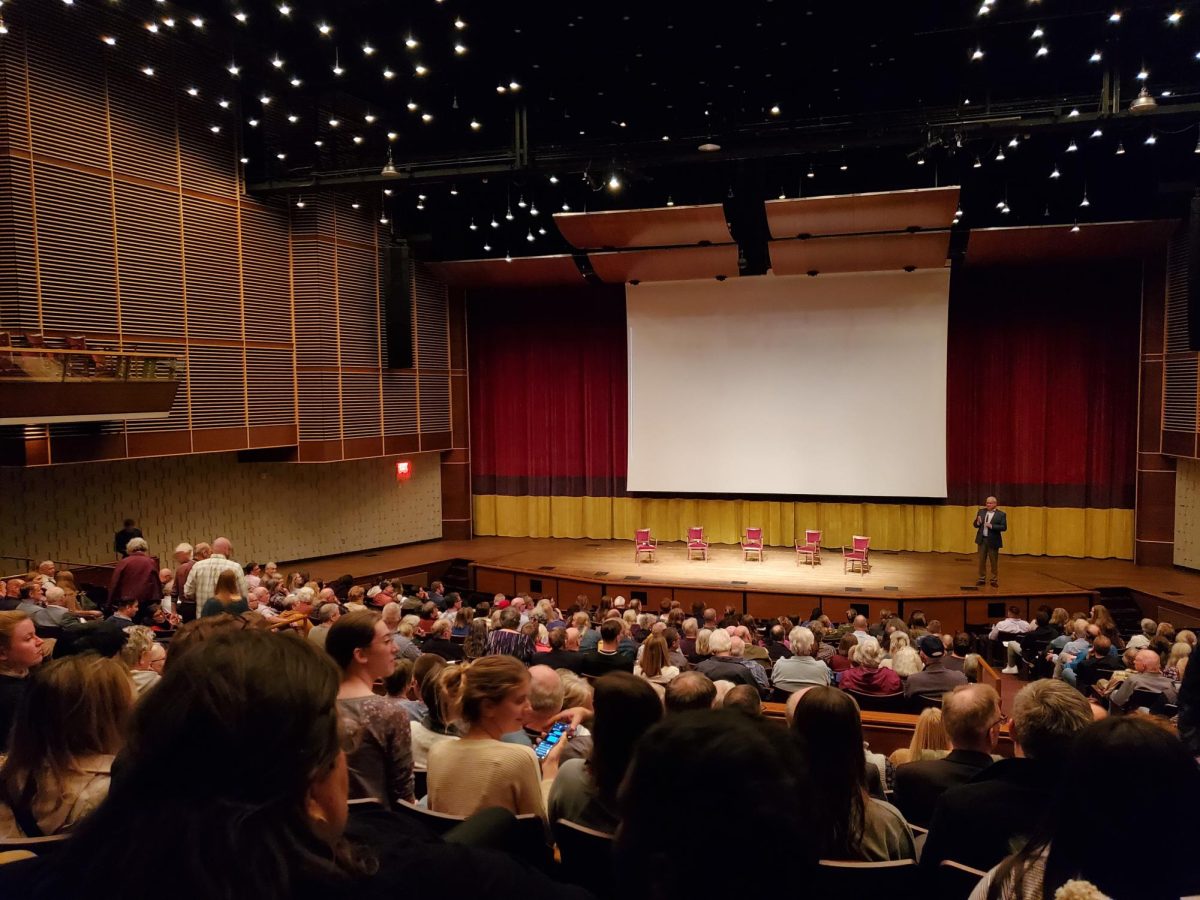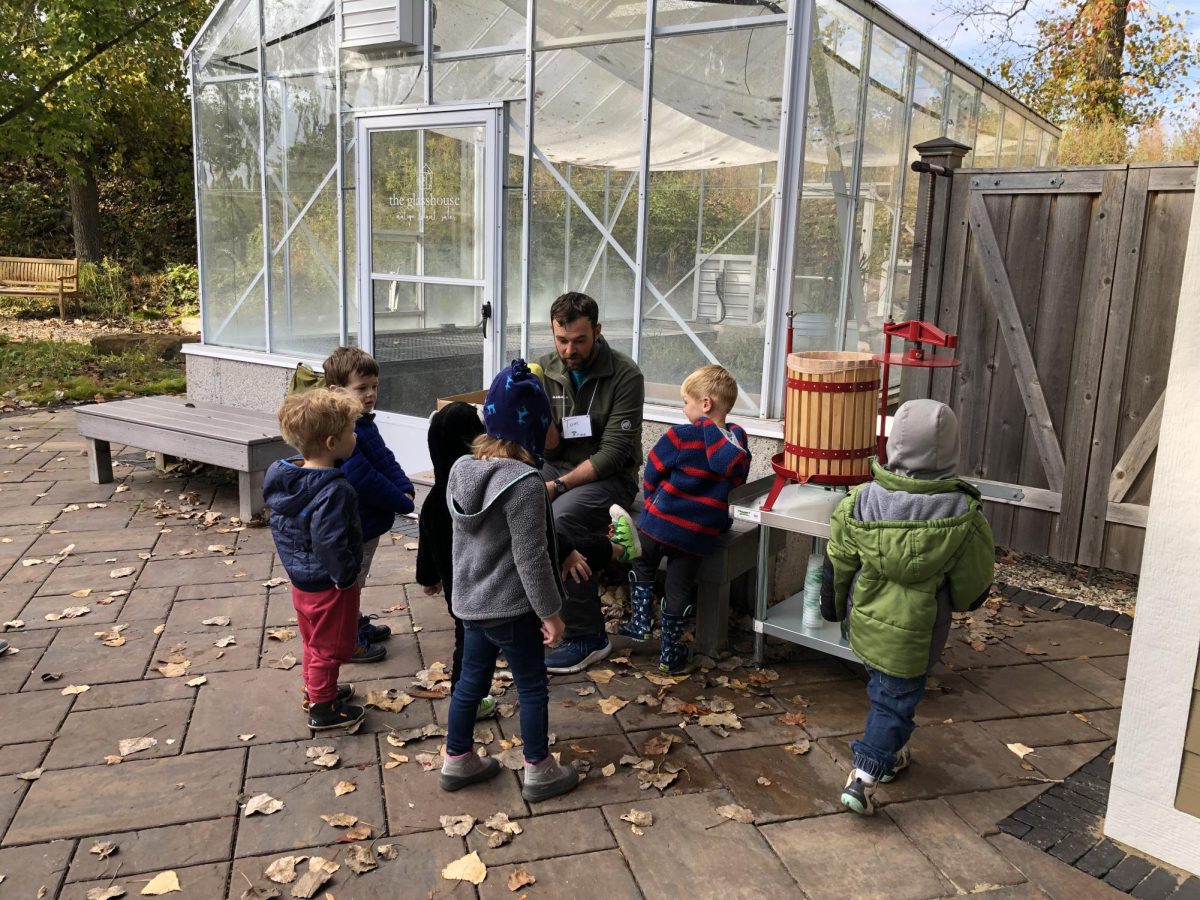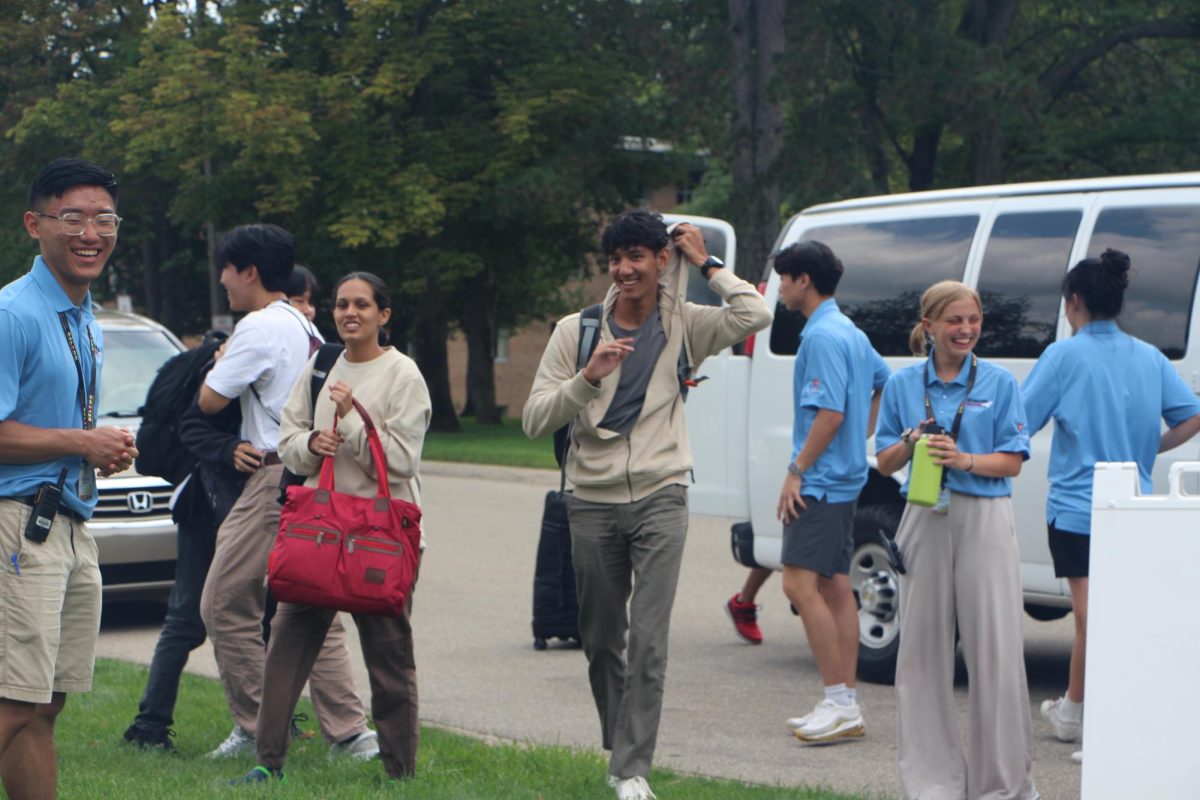Thursday, Oct. 17 was the kickoff day for a special campus event put together as a “love letter” to Middle Eastern culture. This event, the C/O Exist Middle East Culture Series, unites a host of student organizations, faculty, artists and filmmakers in an extraordinary effort to bring the bounties of Middle Eastern stories and culture to Calvin as well as highlighting the interactions and connections of the United States with this often troubled region. Its very name emphasizes both that unity and its nature as a message — the “C/O” in the name refers to the phrase “care of,” so that it highlights that it is the work of a whole community to take “care of” existence — and its ethos is reflected in how it has joined the efforts of so many on campus.
The theme of C/O Exist concerns the intersection of cultures and economies, the exchanges that take place between people of different locations and backgrounds. Art, film, writing and stories circulate between the Middle East and the United States as readily as do commodities and exports. This festival will shed light on often-overlooked aspects of American and Middle East relations, including these artistic and cultural products that rarely receive mention in a mainstream news press that is more interested in exploiting popular paranoia about Islam and terrorism.
The series also promotes important values of cooperation and understanding, as well as the imperative to do justice to one’s neighbor. The basic point of C/O Exist is to bring something of the experience of the Middle East to Calvin, breaking us out of unhelpful patterns of thinking about these issues in the abstract without considering the subjectivity and creativity of the real people involved. Understanding how the United States has shaped the Middle East, and vice versa, will allow students to come to grips with their own cultural identities and how these might be expressed given what they learn. The myriad of injustices at work in the relationships between Americans and Muslims, in particular, need to be addressed, and I believe that this event can impart some wisdom to those who are willing to watch and listen.
Last Thursday’s event, the film “Broken Cameras,” has already past, but its message about the disastrous humanitarian consequences of Israeli wall-building in Palestine is extremely timely, especially given the continued expansion of settlements in the West Bank. The film was sponsored by Healing Children of Conflict, a group which was founded in part by professor Douglas Howard in the history department. This organization raises funds for the purpose of attaining proper medical care for children affected by American wars abroad, particularly in Iraq.
On Thursday, Oct. 24, the communication arts and sciences (CAS) department sponsored a screening of “Close Up,” a film by Iranian directorial master Abbas Kiarostami, with a contextualizing introduction by professor Carl Plantinga. Iran has boasted one of the most creative and brilliant national film industries for more than a decade, with Kiarostami leading the way.
The Film Arts Committee has contributed a film as well, namely “Persepolis,” an adaptation of Marjane Satrapi’s graphic autobiography of the same name. Telling the story of a young Iranian girl’s maturation during the Iranian Revolution and the subsequent Iran-Iraq War, the film is a beautiful animated work drawn in stark black-and-white, telling the story of societal change from a personal perspective. That screening will be on Saturday, Oct. 26 in the Bytwerk Theater.
Next on the agenda is “Amreeka,” a film showing the difficulties that Middle Eastern immigrants and refugees face in moving to the United States. Focusing on a Palestinian-American family that moves to the suburbs of Chicago, it is the debut work of director Cherien Dabis, who is originally from Palestine. The film received a great deal of praise from critics in its opening at Sundance in 2009, and it will be screened Monday, Nov. 4 in the Commons Annex Lecture Hall.
The art history department, meanwhile, will be showing “Cairo Time,” a romantic drama film about an intense friendship between a Canadian magazine writer and a man she met in Egypt. Winning the best Canadian film prize at the Toronto International Film Festival in 2009, the film is a well-regarded piece and will be shown in the CFAC on Friday, Nov. 15 with an introduction and discussion led by professor Craig Hanson.
While film has been a major strength in Middle Eastern art for a long time, C/O Exist also features a number of other events. Professor Joel Westra will be delivering a lecture entitled “Envisioning Peace in the Middle East” at 4 p.m. in the Meeter Center on Thursday, Oct. 31. This event, sponsored by the political science department, is sure to be an enlightening one for anyone looking to understand the labyrinth of political and social conditions that have made this region so tumultuous, as well as how a solution might be found. Earlier this week, on Monday, professor Bert de Vries gave a talk,“Refugees in the Syria Conflict: The View from Zaatari Camp,” highlighting how, in the euphoria over the diplomatic solution to Syrian chemical weapons stockpiles, the human cost of the war in Syria has been muted or ignored. As Professor de Vries has direct relationships with Syrian refugees in Jordan, there will be a fundraising event to raise money to provide more resources for Syrian refugees in Jordan.
Throughout this week, there has been an ongoing week of prayer for Syria. Students who participate have been saying prayers in light of the ongoing bloodshed in that country, where over two million have been displaced as refugees and around 100,000 have died. Another event concerning refugees, this time focusing on those displaced from Palestine, will be hosted by professor David Crump from the religion department. This will take place on Nov. 5.
Joshua Davis, a singer-songwriter from Michigan who ran across Palestine in an incident documented by the film “The People and the Olive,” will be returning to Calvin following a visit to the campus last spring. Combining musical performance and personal storytelling, Davis has a keen eye for observation and a powerful story to relate. That event will take place in the Cave Cafe on Thursday, Nov. 7. That same day, the Middle East Club will be hosting Taste of the Middle East. Those who go to this event, which will begin at 5:30 p.m. in the Chapel undercroft, will be able to partake in food from Egypt, Iraq, Palestine and Lebanon, all prepared with the assistance of Grand Rapids’ Middle Eastern community. Furthermore, the Cave Cafe is also doing a Middle East storytelling night at 8 p.m. on Oct. 31 in the Fish House. Those from the Middle East or those that have visited are welcome to share their stories.
In addition to all of this, campus cultural magazine Dialgoue will be publishing a special commemorative issue for C/O Exist. It will contain the Calvin community’s art and writing about the Middle East, collected from submissions over the past month.
Of course, these educational events will not be the end. As the leader of the Film Arts Committee, I played a role in the selection of the films to be shown, and throughout the process have marveled at the skillful coordination and ambition shown by the series’s instigator Priscilla Lin. I thank her for the opportunity to be included in such an important event, and hope that those of you who read this will make it your priority to attend some or all of the remaining events.
For more information: https://www.facebook.com/calvinmiddleeastcultureseries




